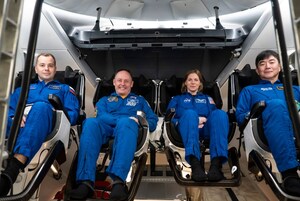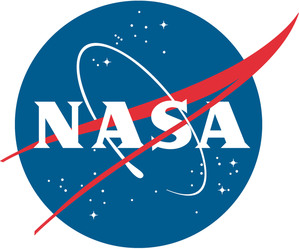
WASHINGTON, May 6, 2011 /PRNewswire-USNewswire/ --NASA's Space Flight Awareness Program recently recognized three native Virginians - who work at the agency's headquarters in Washington - for their outstanding support of human space flight.
(Logo: http://photos.prnewswire.com/prnh/20081007/38461LOGO)
Michael Eaton of Portsmouth, the agency's property disposal manager at NASA Headquarters, was recognized for his innovative solutions to disposing the property of the shuttle program due to its retirement this year. He underwent negotiations with the General Services Administration (GSA) and developed a Memorandum of Agreement that authorizes GSA to conduct the sale of property on behalf of NASA.
Victoria Friedensen of Herndon, the program executive for the Lunar Crater Observation and Sensing Satellite (LCROSS) at NASA Headquarters, was recognized for devising and implementing an innovative approach for public outreach using all the tools of social media, coordinating the campaign with science museums, a national network of librarians, amateur astronomers and non-traditional partners, like the Navajo Nation.
Patricia Talbert of Goldvein, a multimedia producer at NASA Headquarters was recognized for her support to the LAUNCH: Health forum, which was sponsored by the Space Operations Mission Directorate and the Innovative Partnerships Office.
For their contributions, the three, along with hundreds of other awardees from across the agency, traveled last week to NASA's Kennedy Space Center in Florida to tour the center and participate in activities in conjunction with the planned launch of space shuttle Endeavour on the STS-134 mission to the International Space Station.
NASA's Space Flight Awareness Program recognizes outstanding job performances and contributions by civil service and contract employees throughout the year and focuses on excellence in quality and safety in support of human space flight.
The Honoree Award is one of the highest honors presented to employees for their dedication to quality work and flight safety.
Recipients must have contributed beyond their normal work requirements toward achieving a particular human space flight program goal; contributed to a major cost savings; been instrumental in developing material that increases reliability, efficiency or performance; assisted in operational improvements; or been a key player in developing a beneficial process improvement.
For information about NASA and agency programs, visit:
SOURCE NASA






Share this article